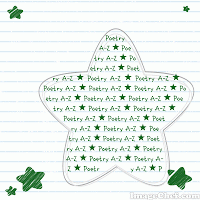Macbeth: Act 4, Scene 1
A dark cave. In the middle, a boiling cauldron.
Thunder. Enter the three Witches.
First Witch
Thrice the brinded cat hath mew'd.
Second Witch
Thrice and once the hedge-pig whined.
Third Witch
Harpier cries "'Tis time, 'tis time."
First Witch
Round about the cauldron go;
In the poison'd entrails throw.
Toad, that under cold stone
Days and nights has thirty-one
Swelter'd venom sleeping got,
Boil thou first i' the charmed pot.
All
Double, double, toil and trouble;
Fire burn, and cauldron bubble.
Second Witch
Fillet of a fenny snake,
In the cauldron boil and bake;
Eye of newt and toe of frog,
Wool of bat and tongue of dog,
Adder's fork and blind-worm's sting,
Lizard's leg and howlet's wing,
For a charm of powerful trouble,
Like a hell-broth boil and bubble.
All
Double, double, toil and trouble;
Fire burn and cauldron bubble.
Third Witch
Scale of dragon, tooth of wolf,
Witches' mummy, maw and gulf
Of the ravin'd salt-sea shark,
Root of hemlock digg'd i' the dark,
Liver of blaspheming Jew,
Gall of goat, and slips of yew
Silver'd in the moon's eclipse,
Nose of Turk and Tartar's lips,
Finger of birth-strangled babe
Ditch-deliver'd by a drab,
Make the gruel thick and slab:
Add thereto a tiger's chaudron,
For the ingredients of our cauldron.
All
Double, double, toil and trouble;
Fire burn and cauldron bubble.
Second Witch
Cool it with a baboon's blood,
Then the charm is firm and good.



.gif)




















